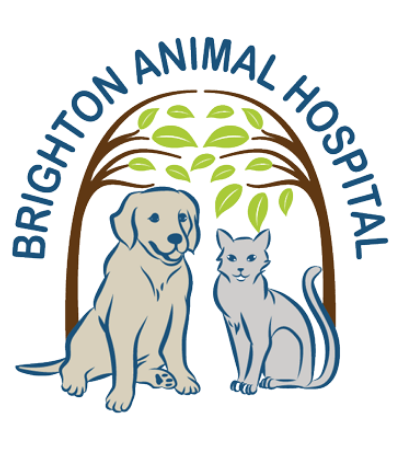We have answers to your biggest questions.
Do I need to have an appointment?
What forms of payment do you accept?
Cash, Check, MasterCard, Visa, Discover, American Express, and CareCredit.
Can I make payments?
At what age can I have my pet spayed or neutered?
Spaying or neutering can be done at approximately six months of age. Your pet is given an exam prior to surgery to help determine whether your pet is healthy enough to undergo the surgical procedure. Current vaccinations are required at the time of surgery. Also, a pre-anesthetic blood screen is recommended prior to undergoing anesthesia and surgery.
What is the pre-anesthetic blood screening?
This is a blood test that is run here in the clinic prior to surgery. It tests the organ functions, blood counts, and clotting function of your pet. The pre-anesthetic blood screening is done to assure safety during surgery and the ability to heal following surgery.
How long do the sutures stay in after my pet's surgery?
Procedures involving sutures require them to be removed 7 to 10 days following the surgery. Depending on the surgery, sutures may be left in longer to support the healing process. You will be given instructions when your pet is discharged from the hospital.
Is it a good idea to let my pet have at least one litter?
No, there is no advantage to letting your pet have one litter. However, there are plenty of advantages to having your pet spayed or neutered. These advantages include decreasing the chances of breast tumors later in life; decreasing the chance of cystic ovaries and uterine infections later in life; decreasing the desire to roam the neighborhood; decreasing the incidence of prostate cancer later in life; helping prevent spraying and marking; and also decreasing the surplus of unwanted puppies and kittens.
We have answers to your biggest questions about surgery.
Many people have questions about various aspects of their pet’s surgery, and we hope this information will help. It also explains the decisions you will need to make before your pet’s upcoming surgery.
Is the anesthetic safe?
Today’s modern anesthetic monitors have made surgery much safer than in the past. Here at Brighton Animal Hospital and Boarding Kennel, PC, we do a thorough physical exam on your pet before administering anesthetics to ensure that a fever or other illness won’t be a problem. We also adjust the amount and type of anesthetic used depending on the health of your pet. The pre-surgical and bloodwork consent form presented when admitting your pet explains this in greater detail. Pre-anesthetic blood testing is important in reducing the risk of anesthesia. Every pet should have blood testing before surgery to ensure that the liver and kidneys can handle the anesthetic. Even apparently healthy animals can have serious organ system problems that cannot be detected without blood testing. If there is a problem, it is much better to find it before it causes anesthetic or surgical complications. Animals that have minor dysfunction will handle the anesthetic better if they receive IV fluids during surgery. If serious problems are detected, surgery can be postponed until the problem is corrected. We offer three levels of in-house blood testing before surgery, which we will go over with you when you bring your pet in. Our doctors prefer the more comprehensive screen because it gives them the most information to ensure the safety of your pet. For geriatric or ill pets, additional blood tests, electrocardiograms, or x-rays may be required before surgery as well. It is important that surgery is done on an empty stomach to reduce the risk of vomiting during and after anesthesia. You will need to withhold food for at least 8 to 10 hours before surgery. Water can be left down for the pet until the morning of surgery.
Will my pet have stitches?
For many surgeries, we use absorbable sutures underneath the skin. These will dissolve on their own and do not need to be removed later. Some surgeries, especially tumor removals, do require skin stitches. With either type of suture, you will need to keep an eye on the incision for swelling or discharge. Most dogs and cats do not lick excessively or chew at the incision, but this is an occasional problem you will also need to watch for. If there are skin sutures, these will usually be removed 10 to 14 days after surgery. You will also need to limit your pet’s activity level for a time, and no baths are allowed for the first 10 days after surgery.
Will my pet be in pain?
Anything that causes pain in people can be expected to cause pain in animals. Pets may not show the same symptoms of pain as people do; they usually don’t whine or cry, but you can be sure they feel it. Pain medications needed will depend on the surgery performed. Major procedures require more pain relief than things like minor lacerations. For dogs, we may recommend an oral anti-inflammatory the day after surgery and several days after to lessen the risk of discomfort and swelling. We use newer medications, which are less likely to cause stomach upset and can be given even the morning of surgery. Because cats do not tolerate standard pain medications such as aspirin, ibuprofen, or Tylenol, we are limited in what we can give them. Recent advances in pain medications have allowed for better pain control in cats than ever before. If needed, we will administer a pain injection 10 minutes prior to surgery. After surgery, pain medication is given on a case by case basis. Any animal that appears painful will receive additional pain medication. Injectable pain medications may be used after surgery on both dogs and cats. Providing whatever pain relief is appropriate is a humane and caring thing to do for your pet.
What other decisions do I need to make?
While your pet is under anesthesia, it is the ideal time to perform other minor procedures, such as dentistry, ear cleaning, or implanting an identification microchip. If you would like an estimate for these extra services, please call ahead of time. This is especially important if the person dropping the pet off for surgery is not the primary decision maker for the pet’s care. When you bring your pet in for surgery, we will need to 5 to 10 minutes of time to fill out paperwork and make decisions on the blood testing and other options available. When you pick up your pet after surgery, you can also plan to spend about 10 minutes to go over your pet’s home care needs. We will call you before your scheduled surgery appointment to confirm the time you will be dropping your pet off and to answer any questions you might have. In the meantime, please don’t hesitate to call us with any questions about your pet’s health or surgery.
Contact Info
Phone: 585-586-1462
Fax: 585-586-7848
Email: [email protected]
Location
723 Linden Ave
Rochester, NY 14625
Have a question?
Get in touch! Complete the form below, and a member of our team will be in touch with you shortly. If you're in need of immediate assistance, please contact us at 585-586-1462.

Ready to come see us?
Call us now to schedule your next appointment. We look forward to seeing you soon!
Hours
Mon & Wed: 8:30 AM - 8:00 PM
Tues, Thurs, Fri: 8:30 AM - 6:00 PM
Sat*: 9:00 AM - 2:00 PM
Sun: Closed
* Saturday doctor appointments available
9 AM - 12 PM by appointment
